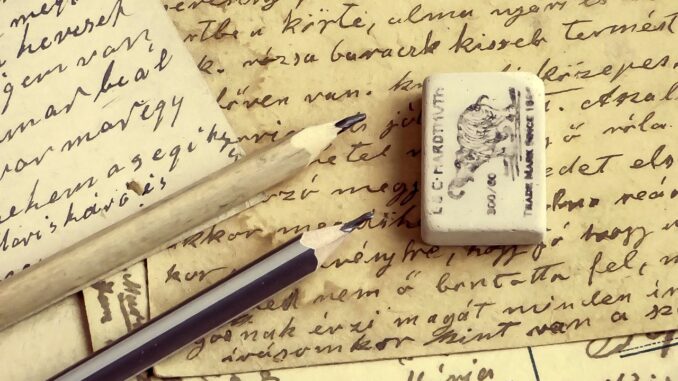
Korrespondanse, eller brevskriving, har blitt gjort i uminnelige tider. Det første håndskrevne brevet antas å være brevet den persiske dronningen Atossa skrev og sendte til den greske historikeren Hellanikos i år 500 før Kristus. Gjennom historien har det blitt skrevet noen ekstra spesielle brev, og her er fem av dem.
1: Clyde Barrow til Henry Ford
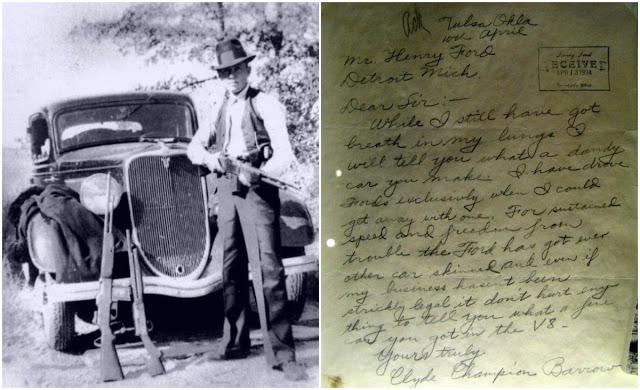
Hvis man nevner navnet Clyde Barrow, så tenker de fleste kanskje; «hvem?». Men det vil kanskje bli litt mer kjent hvis man legger til hans partner Bonnie Elizabeth Parker, som begge ble beryktet for flere bankran og mord. De møtte begge sitt endelikt den 23.mai 1934, men før den tid rakk Clyde å skrive et brev til Henry Ford hvor han skrøt av bilene Ford produserte.
Tulsa, Okla 10th April
Mr Henry Ford Detroit, Mich.
Dear Sir
While I still have got breath in my lungs I will tell you what a dandy car you make. I have drove Fords exclusively when I could get away with one. For sustained speed and freedom from trouble the Ford has got ever other car skinned and even if my business hasen’t been strickly legal it don’t hurt enything to tell you what a fine car you got in the V8.
Yours truly Clyde Champion Barrow
2: Mahatma Gandhi til Adolf Hitler
Gandhi og Hitler trenger ingen større introduksjon, Gandhi skrev to brev til Hitler, hvor han titulerte Adolf som «venn». Han formet det som en appell for å avslutte andre verdenskrig, hvor Gandhi var i stor grad frustrert over å se hans herjinger i Europa. Dette er det første av to, skrevet i 1939. Det neste skrev han i 1940.
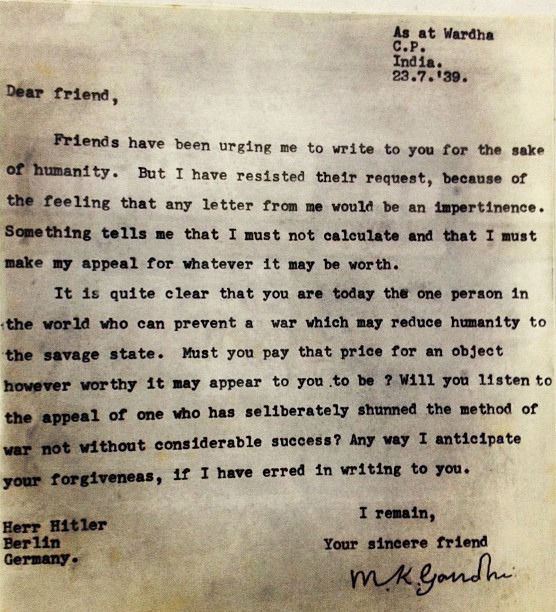
As AT WARDHA
C.P.,
INDIA,
July 23, 1939DEAR FRIEND,
Friends have been urging me to write to you for the sake of humanity. But I have resisted their request, because of the feeling that any letter from me would be an impertinence. Something tells me that I must not calculate and that I must make my appeal for whatever it may be worth. It is quite clear that you are today the one person in the world who can prevent a war which may reduce humanity to the savage state. Must you pay that price for an object however worthy it may appear to you to be? Will you listen to the appeal of one who has deliberately shunned the method of war not without considerable success? Anyway I anticipate your forgiveness, if I have erred in writing to you.
I remain,
Your sincere friend,
HERR HITLER
BERLIN GERMANY
3: Albert Einstein/Leo Szilard til Franklin D. Roosevelt
I brevet til USAs president Franklin D. Roosevelt fra fysikerne Albert Einstein og Leo Szilard, sendt i 1939, advarer de mot faren for angrep med atomvåpen fra nazistene. De snakker om fisjon og hvordan nazistene kunne bli de første til å utvikle atombomben. De oppfordret Roosevelt til å godkjenne forskning i USA for å kunne håndtere den mulige trusselen fra tyskerne. Brevet er en nøkkel i utviklingen av The Manhattan Project som ledet til utviklingen av atombomben amerikanerne slapp over Japan.
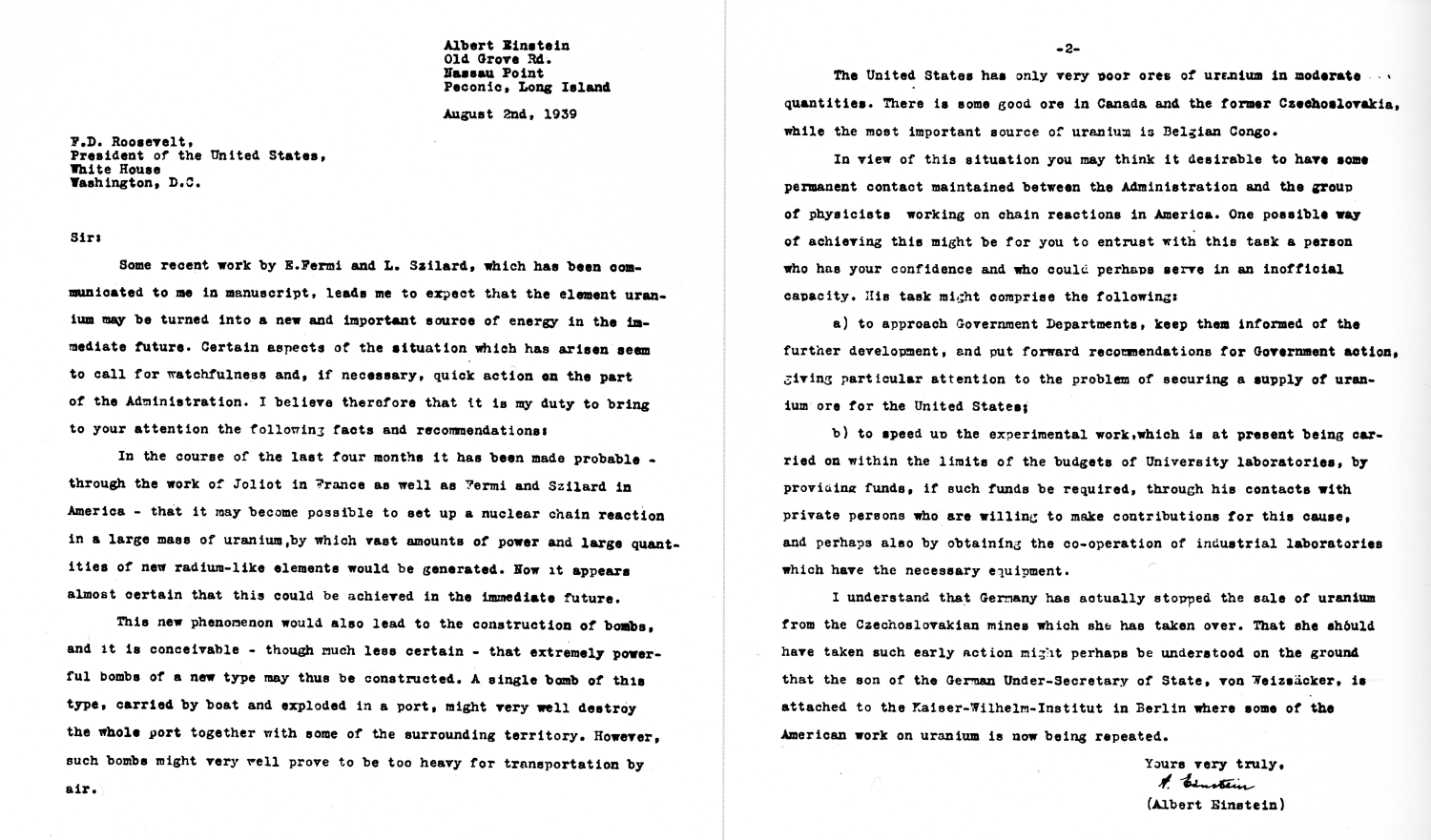
F.D. Roosevelt
President of the United States
White House
Washington, D.C.
Sir:Some recent work by E. Fermi and L. Szilard, which has been communicated to me in manuscript, leads me to expect that the element uranium may be turned into a new and important source of energy in the immediate future. Certain aspects of the situation which has arisen seem to call for watchfulness and if necessary, quick action on the part of the Administration. I believe therefore that it is my duty to bring to your attention the following facts and recommendations.
In the course of the last four months it has been made probable through the work of Joliot in France as well as Fermi and Szilard in America–that it may be possible to set up a nuclear chain reaction in a large mass of uranium, by which vast amounts of power and large quantities of new radium-like elements would be generated. Now it appears almost certain that this could be achieved in the immediate future.
This new phenomenon would also lead to the construction of bombs, and it is conceivable–though much less certain–that extremely powerful bombs of this type may thus be constructed. A single bomb of this type, carried by boat and exploded in a port, might very well destroy the whole port together with some of the surrounding territory. However, such bombs might very well prove too heavy for transportation by air.
The United States has only very poor ores of uranium in moderate quantities. There is some good ore in Canada and former Czechoslovakia, while the most important source of uranium is in the Belgian Congo.
In view of this situation you may think it desirable to have some permanent contact maintained between the Administration and the group of physicists working on chain reactions in America. One possible way of achieving this might be for you to entrust the task with a person who has your confidence and who could perhaps serve in an unofficial capacity. His task might comprise the following:
a) to approach Government Departments, keep them informed of the further development, and put forward recommendations for Government action, giving particular attention to the problem of securing a supply of uranium ore for the United States.
b) to speed up the experimental work, which is at present being carried on within the limits of the budgets of University laboratories, by providing funds, if such funds be required, through his contacts with private persons who are willing to make contributions for this cause, and perhaps also by obtaining co-operation of industrial laboratories which have necessary equipment.
I understand that Germany has actually stopped the sale of uranium from the Czechoslovakian mines which she has taken over. That she should have taken such early action might perhaps be understood on the ground that the son of the German Under-Secretary of State, von Weizsacker, is attached to the Kaiser-Wilhelm Institute in Berlin, where some of the American work on uranium is now being repeated.
Yours very truly,
Albert Einstein
4: Richard Burton til Elizabeth Taylor
Den walisiske skuespilleren Richard Burton var gift to ganger med Elizabeth Taylor – 1964 – 1974 og 1975-76, men begge ekteskapene endte med skilsmisse. Men de var et ikonisk Hollywood-par, og lagde hele elleve filmer sammen, blant annet The Taming of the Shrew og Who’s Afraid of Virginia Woolf. De hadde utvilsomt et stormfullt, men også lidenskapelig forhold, noe Richard Burtons kjærlighetsbrev kan dokumentere.
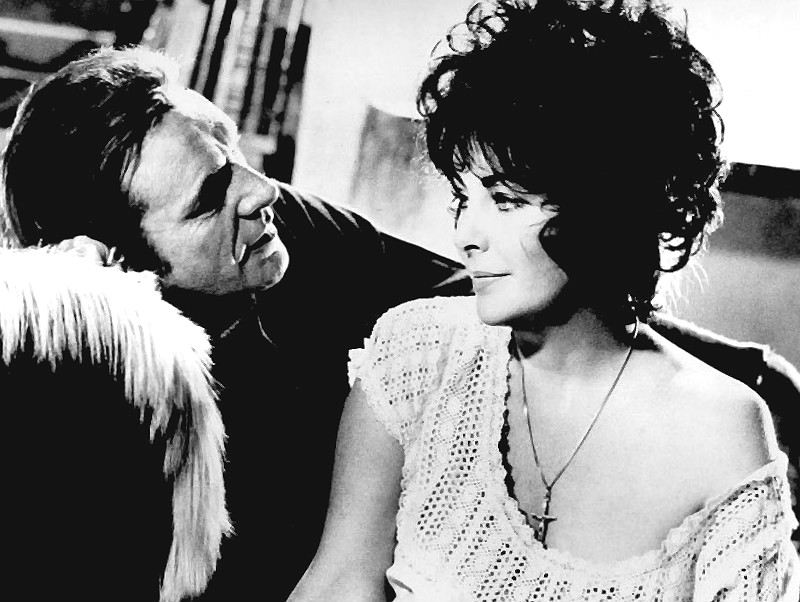
I lust after your smell … and your round belly and the exquisite softness of the inside of your thighs and your baby-bottom and your giving lips & the half-hostile look in your eyes when you’re deep in rut with your little Welsh stallion.
My blind eyes are desperately waiting for the sight of you. You don’t realise of course, E.B., how fascinatingly beautiful you have always been, and how strangely you have acquired an added and special and dangerous loveliness.
Your breasts jutting out from that half-asleep languid lingering body, the remote eyes, the parted lips.
5: Martin Luther King Jr. fra Birmingham fengsel
Borgerrettsforkjemper Martin Luther King Jr. satt i april 1963 fengslet i Birmingham, Alabama for å ta del i ikke-voldelige protester mot segregering av hvite og fargede amerikanske borgere. Han skrev brevet i fragmenter – på deler av avispapir og annet papir han fant i avfallet, som hans tilhengere på utsiden puslet sammen til et helhetlig åpent brev. Det er ansett som et av de viktigste brevene i historien, blant annet fra direktøren til Martin Luther King Institute – Clayborne Carson. Brevet ble publisert i magasinet Liberation i juni 1963.
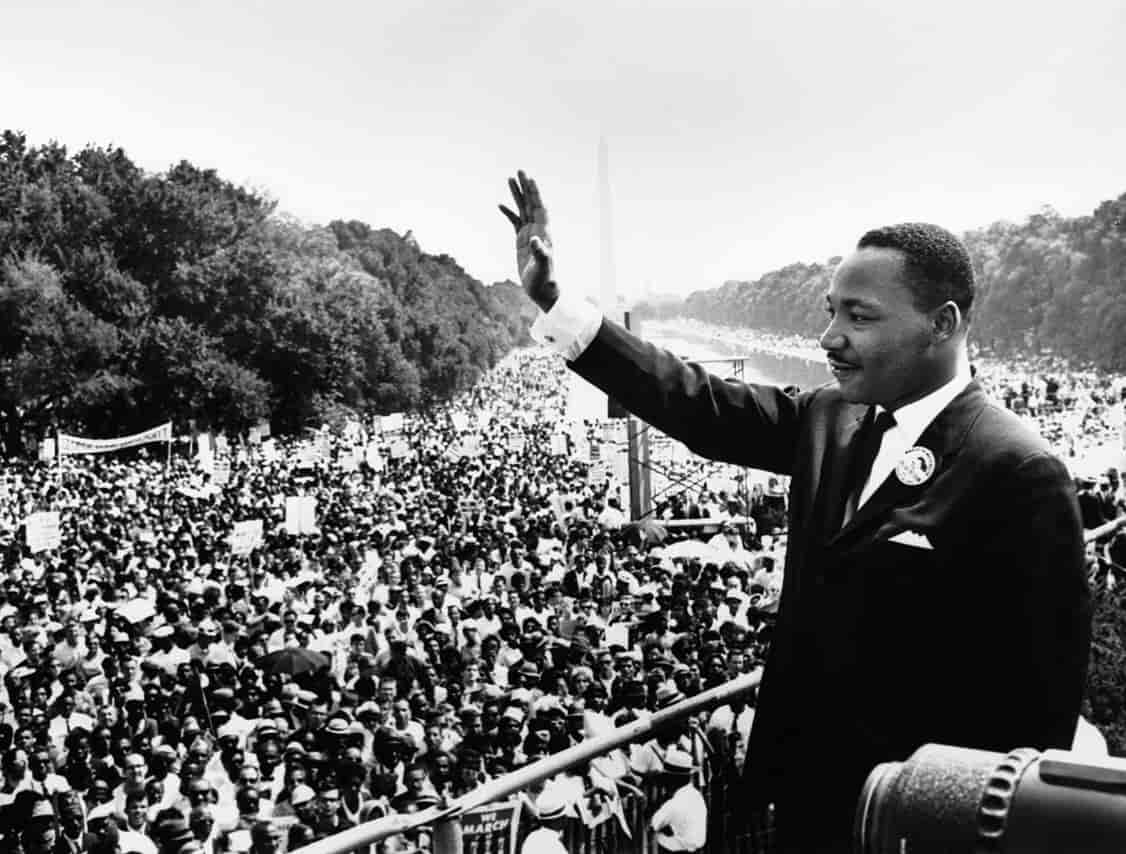
Utdrag fra brevet:
I must make two honest confessions to you, my Christian and Jewish brothers. First, I must confess that over the past few years I have been gravely disappointed with the white moderate. I have almost reached the regrettable conclusion that the Negro’s great stumbling block in his stride toward freedom is not the White Citizen’s Counciler or the Ku Klux Klanner, but the white moderate, who is more devoted to «order» than to justice; who prefers a negative peace which is the absence of tension to a positive peace which is the presence of justice; who constantly says: «I agree with you in the goal you seek, but I cannot agree with your methods of direct action»; who paternalistically believes he can set the timetable for another man’s freedom; who lives by a mythical concept of time and who constantly advises the Negro to wait for a «more convenient season.» Shallow understanding from people of good will is more frustrating than absolute misunderstanding from people of ill will. Lukewarm acceptance is much more bewildering than outright rejection.


Vær den første til å kommentere